At Bethesda Dental Implant Center, we are proud to offer a wide range of periodontal procedures to our patients. This is in order to preserve the health of their teeth and gums and maintain their smile.
If you are in need of periodontal care, we encourage you to call our Bethesda, MD team today to schedule an appointment. We would be happy to discuss all of your treatment options with you and help you choose the best option to ensure the health of your smile.
What is Periodontics?
Before diving in to discuss the periodontal procedures we offer, you may be wondering, “What is periodontics?” Periodontics is a branch of dentistry that focuses on the health of your gums and the tissues that support your teeth. This includes diagnosing and treating gum disease.
The Importance of Gum Health
Everyone knows that teeth are important because their benefits are quite obvious: chewing, speaking, and smiling. However, gums are just as important because they provide support and stability for your teeth. Therefore, it is essential to maintain healthy gums in order to keep your teeth healthy and strong.
The health of your gum tissue is also important for the health of your entire body. Studies have shown that there is a link between gum disease and other health conditions—such as heart disease, stroke, and diabetes. This is likely due to the function of the gums acting as a seal around the tooth to prevent bacteria from entering the bloodstream. When this seal is compromised, plaque, tartar, and all sorts of bacteria can enter the bloodstream and travel to other parts of the body, causing problems. Therefore, it is important to keep your gums healthy not only for the sake of your teeth but for your overall health as well.
Periodontal Disease
Sadly, periodontal disease, or gum disease, is quite common among adults in the United States. In fact, it is estimated that half of all adults over the age of 30 have some form of periodontal disease.
Periodontal disease is an infection of the gum tissue, caused by a build-up of plaque and tartar along the gum line. This accumulation of bacteria can irritate the gum tissue, causing the gums to recess and retreat from the base of the tooth. This causes pockets to form between the teeth and gums—completely out of reach from your toothbrush. Once bacteria begin to fill these pockets, the roots of the teeth can become exposed and damaged; eventually, the teeth will become loose and fall out.
- In its early stages, periodontal disease is known as gingivitis. Symptoms of gingivitis include red, swollen, or bleeding gums. If you notice any of these symptoms, it is important to call our office right away. Gingivitis is treatable with professional cleanings and good at-home oral hygiene habits. However, if gingivitis is not treated and progresses, it can turn into periodontitis.
- Periodontitis is a more serious form of gum disease that presents once damage has been done to the gums and bone. Symptoms of periodontitis include receding gums, deep pockets between teeth and gums, loose teeth, and chronic bad breath. Periodontitis is not reversible, but it can be controlled with proper treatment.
- Advanced periodontitis is the final stage of periodontal disease and can lead to the loss of teeth. These symptoms are similar to those of periodontitis, however, the damage done is much more severe. At this stage, the gums and bone have been so damaged that the teeth are no longer securely anchored in place and will eventually fall out.
If you are experiencing any symptoms of gum disease, it is important to call our office right away to schedule an appointment. The earlier the disease is caught, the easier it will be to treat.
Treatment for Periodontal Disease
Once periodontal disease has been diagnosed, there are a number of treatment options available. Treatment will depend on the severity of the disease. Our office offers both scaling and root planing treatment, as well as osseous surgery to treat periodontal disease.
- Scaling and root planing is a nonsurgical treatment that involves the removal of tartar and plaque from both above and below the gum line. This can be done with either manual instruments or an ultrasonic scaler. Once all of the tartar and plaque have been removed, the roots of the teeth will be smoothed to allow the gums to reattach to the teeth.
- Osseous surgery is a surgical procedure that involves the removal of tartar and plaque from below the gum line, as well as the reshaping of the bone. This is often necessary when nonsurgical treatments have not been successful in treating periodontal disease.
If you have been diagnosed with periodontal disease, our office can help. We offer both nonsurgical and surgical treatments to help you get your gum health back on track. Call us today to schedule an appointment.
Periodontal Procedure FAQs
What if I don’t get early treatment for gum disease?
If you don’t get treatment for gum disease as soon as possible, it will continue to progress and become much more difficult to treat. You may need surgery to correct the damage that has been done. In severe cases, you may even lose your teeth.
What is the best way to prevent gum disease?
The best way to prevent gum disease is to practice good oral hygiene habits. This includes brushing your teeth twice a day, flossing daily, and visiting the dentist regularly for professional cleanings and checkups.
Will my insurance cover the cost of treatment?
Most insurance plans will cover at least a portion of the cost of treatment for gum disease. However, coverage will vary depending on your individual plan. Contact our office to find out how your insurance plan covers periodontal treatment.
